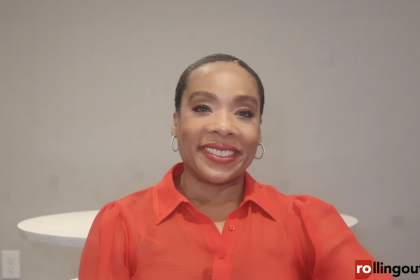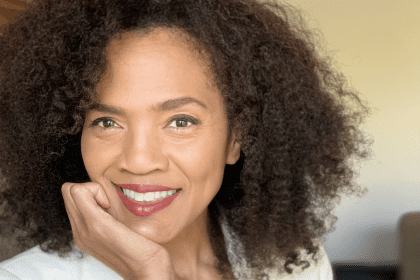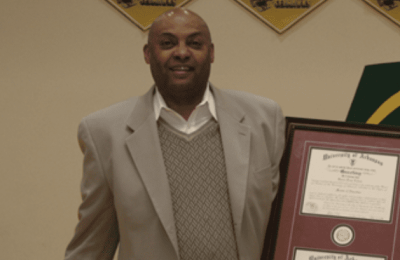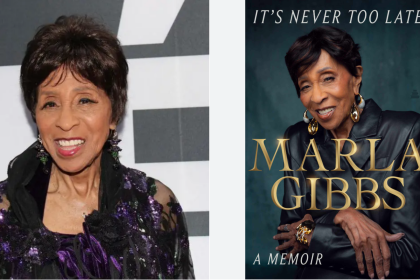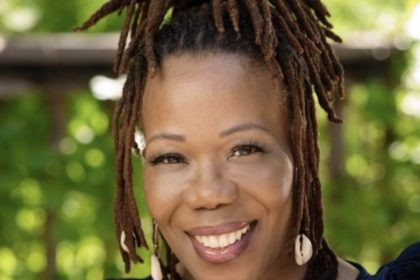Award-winning ABC journalist Deborah Roberts is the first author featured in the all-new Author to Author book chat series. Roberts joined host Christal Jordan to discuss her new book, Lessons Learned and Cherished: The Teacher Who Changed My Life.
In The Teacher Who Changed My Life, Roberts curates a collection of essays, letters, and musings from celebrity friends and colleagues alike that share how teachers changed them and helped them get to where they are today.
How did you develop the theme for your book?
In fact, Robin Roberts was one of the very first people I mentioned this idea to and I said, “What do you think?” And she said, “I think this sounds really cool. I think this sounds good.” She immediately started talking about her teacher.
What I found is essentially that it was the teacher who saw something in these people. It wasn’t necessarily just about the subject matter but they remember what the teacher did for them and how they made them feel. Sergio Hudson, the designer, said that his teacher in fashion school said he was getting cocky. He thought he was so terrific. A famous Broadway singer said the same thing. She was getting very cocky. And they both had teachers that pulled them back from the brink who essentially smacked their hands and said, “Are you kidding me? You’re not all that.” And they really forced them to look at themselves differently and to improve their game and to add discipline into their lives.
What are some of your favorite lessons from the book?
[Chef] Rachael Ray had an interesting point because she didn’t speak so much about her teacher as much as about her grandfather. She said lessons can also come not just in the school, but he would get her ready for school, and he would give her pep talks as she was going to school. A lot of her lessons came before and after she came went to school from her grandfather. [Actress] Lorraine Toussaint talks about having a negative experience balanced by a positive one. Spike Lee talks about how he became a filmmaker [and that] his professor one summer when things were rough in the country and a lot of things were going on, said, “Go out there and make a film,” and there was a blackout in New York, so he talked about how that set him on his path. What I loved most is that once I started talking to these folks, the child in them came out suddenly. They would say they only had 20 minutes to speak and they just kept talking because they reached back to a time that I think they cherished, and they felt so comfortable sharing what this was.

